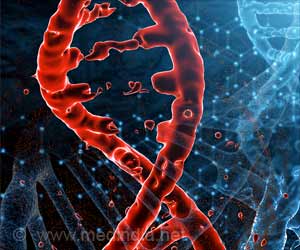Using artificial intelligence, researchers from integrated biosciences have identified three senolytics with superior efficacy and drug-like properties relative to other compounds.

Leveraging Deep Learning to Discover Senotherapeutics (Antiaging Drugs)
In this experiment, the AI-guided screening of more than 800,000 compounds revealed three drug candidates with comparable efficacy and superior medicinal chemistry properties to those of senolytics currently under investigation.‘Integrated Biosciences' new artificial intelligence platform has the potential to sustain advances in finding anti-aging compounds and longevity research.’





This research result is a significant milestone for both longevity research and the application of artificial intelligence to drug discovery.Senolytics are compounds that selectively induce apoptosis, or programmed cell death, in senescent cells that are no longer dividing (1✔ ✔Trusted Source
The chemistry of senescence
Go to source). A hallmark of aging, senescent cells have been implicated in a broad spectrum of age-related diseases and conditions including cancer, diabetes, cardiovascular disease, and Alzheimers disease.
Despite promising clinical results, most senolytic compounds identified to date have been hampered by poor bioavailability and adverse side effects.
Integrated Biosciences was founded in 2022 to overcome these obstacles, target other neglected hallmarks of aging, and advance anti-aging drug development more generally using artificial intelligence, synthetic biology, and other next-generation tools.
One of the most promising routes to treat age-related diseases is to identify therapeutic interventions that selectively remove these cells from the body similar to how antibiotics kill bacteria without harming host cells (2✔ ✔Trusted Source
Long-term treatment with senolytic drugs Dasatinib and Quercetin ameliorates age-dependent intervertebral disc degeneration in mice
Go to source).
Advertisement
Artificial Intelligence Identifies New Anti-Aging Compounds
In their new study, Integrated Biosciences researchers trained deep neural networks on experimentally generated data to predict the senolytic activity of any molecule. Using this AI model, they discovered three highly selective and potent senolytic compounds from a chemical space of over 800,000 molecules.All three displayed chemical properties suggestive of high oral bioavailability and were found to have favorable toxicity profiles in hemolysis and genotoxicity tests. Structural and biochemical analyses indicate that all three compounds bind Bcl-2, a protein that regulates apoptosis and is also a chemotherapy target (3✔ ✔Trusted Source
Discovering small-molecule senolytics with deep neural networks
Go to source).
Advertisement
This work illustrates how AI can be used to bring medicine a step closer to therapies that address aging, one of the fundamental challenges in biology.
References:
- The chemistry of senescence - (https://www.nature.com/articles/s41570-019-0108-0)
- Long-term treatment with senolytic drugs Dasatinib and Quercetin ameliorates age-dependent intervertebral disc degeneration in mice - (https://www.nature.com/articles/s41467-021-25453-2)
- Discovering small-molecule senolytics with deep neural networks - (https://www.nature.com/articles/s43587-023-00415-z)















